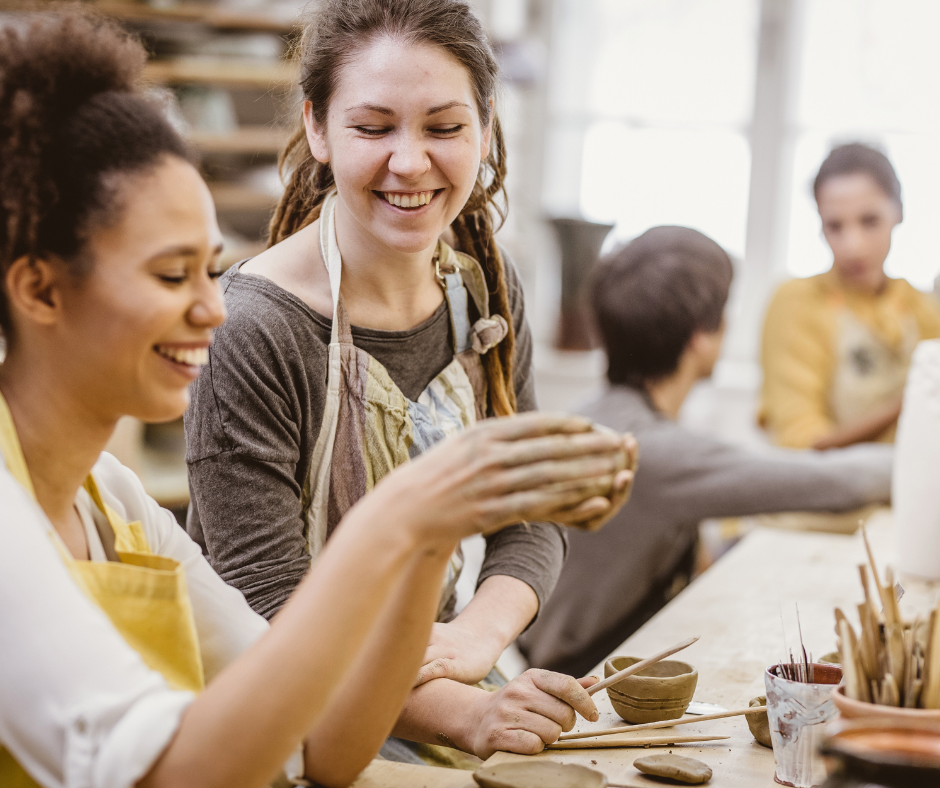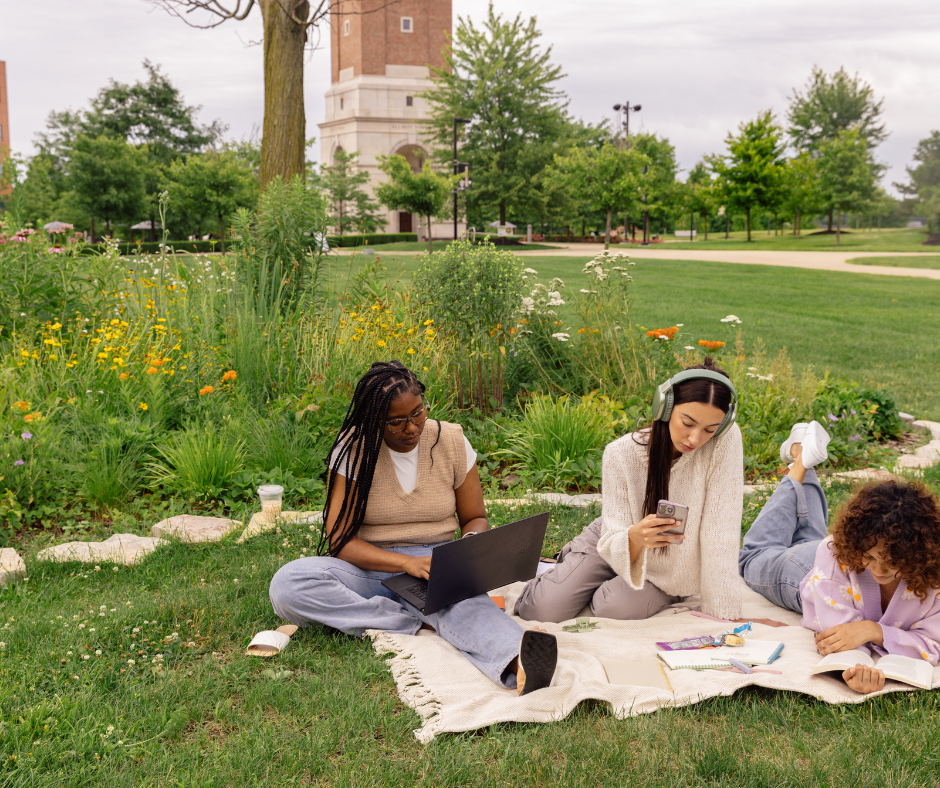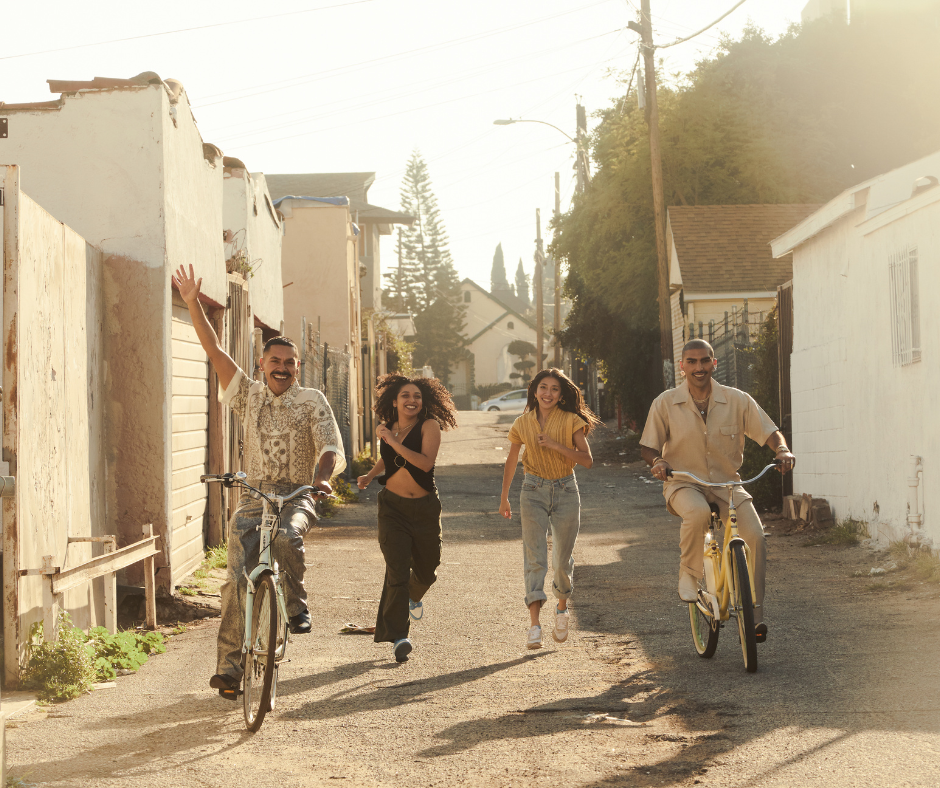Toronto’s Hidden Social Scene: Real Ways to Make Friends as an Adult
Toronto is Canada’s biggest city, full of people and places, yet sometimes it feels like the loneliest spot on the map. You’re surrounded by energy, movement, and possibilities, but making genuine adult friendships can still feel like an uphill climb. Maybe you're new here. Maybe you’ve lived here your whole life but feel disconnected. Or maybe your old social circle has shifted — people have moved, schedules have changed, or life just got in the way. No matter the reason, you’re not alone.
Despite its big-city reputation, Toronto has a rich and often overlooked network of ways to connect. In this guide, we’re diving into real ways to make friends in Toronto — not just vague tips like “go out more,” but accessible and specific ideas rooted in mental wellness and meaningful connection. We’ll also explore how friendship supports your mental health, and why that matters more than ever.

Why Adult Friendships Matter (Especially in Toronto)
Loneliness isn’t just a fleeting emotion — it can impact your physical and emotional well-being. Research shows that chronic loneliness has similar health risks to smoking 15 cigarettes a day. In a city as fast-paced and transient as Toronto, it’s easy to go weeks without a genuine connection — and that can wear on your nervous system.
Friendship provides co-regulation. That’s a fancy way of saying that when you’re around people who make you feel safe, your nervous system calms down. You breathe more deeply. Your muscles relax. Your brain feels less alert for danger. Adult friendships can:
- Help you process hard emotions in a safe way
- Create a sense of routine and belonging
- Encourage laughter and play (something we often forget we need)
- Remind you that you matter to someone outside of work, family, or romantic relationships
And Toronto, despite its reputation, is not lacking in opportunities to create these relationships — they’re just tucked away in places you may not expect.

1. Go Where People Return — Not Just Visit Once
Making friends doesn’t require dozens of new connections. It requires familiarity. You want places where people show up regularly. A few options:
- Drop-in sports leagues (like Zog Sports or Toronto Sport & Social Club): These are for casual players — you don’t need to be athletic. You’ll see the same team weekly.
- Board game cafes like Snakes & Lattes: Many host community nights or open tables for solo players.
- Climbing gyms (Boulderz, Basecamp): These have strong communities and beginner-friendly spaces.
If you feel nervous, try this: go once just to observe. Don’t commit to chatting. Just watch. Then next time, try a small conversation. Familiarity builds confidence.
2. Explore the Arts Scene — Even If You’re Not “An Artist”
Toronto is home to countless creative meetups, and you don’t need to be a professional to join. Some ideas:
- Life drawing sessions (The Good Space, Paint Cabin): Quiet, casual, and no talking required unless you want to.
- Improv drop-ins (Bad Dog Theatre): Great for getting out of your head and into your body — and usually full of people just trying something new.
- Toronto Library Workshops: Did you know most branches host free writing groups, craft nights, and cultural talks?
The arts provide a built-in topic of conversation, which reduces the pressure to "be interesting." You can bond over shared experience, not small talk.

3. Attend Recurring Events — Where the Vibe is Low-Key
Toronto has no shortage of events, but not all are good for making friends. You want places that are casual, recurring, and encourage mingling:
- Meetup groups (like "Toronto Introverts" or "30s & 40s Friend Group")
- The “Subtle Asian Traits – Toronto” FB group meetups
- Volunteering events through Volunteer Toronto
Try setting a goal: attend once a month. No pressure to be the life of the party — just show up and see who you naturally gravitate toward.
4. Find Niche Communities Online — and Meet Offline
From Reddit to Facebook, Toronto has micro-communities built around almost every niche interest:
- r/toronto and r/askTO: Both subreddits have local hangouts and event threads.
- Bumble BFF or Friender App: Focus on people looking specifically for friendship.
- Discord servers for local gamers, writers, or hobbyists.
Online-first connections can feel safer. You get a chance to learn about someone before meeting IRL.

5. Make “Third Places” Your Routine
Sociologists describe “third places” as spots that aren’t home or work — places where community happens naturally. In Toronto, this could look like:
- A local coffee shop you visit at the same time weekly
- Your neighbourhood dog park (even if you don’t have a dog, many people love chatting there)
- A regular thrift market (check out Hippie Market or Leslieville Flea)
The goal? Let people get used to seeing you. Familiarity builds trust.
6. Start Something Yourself
This may sound intimidating, but Toronto is full of people looking to connect — they just don’t know where to begin. You don’t have to be a leader, just a host.
- Host a monthly walk in High Park
- Start a book club at a local café
- Invite coworkers for a standing Saturday morning market visit
You don’t need big numbers. Even 2 or 3 people can create a ripple effect.

7. Use Your Commute (or Local Errands) to Practice Micro-Interactions
This isn’t about becoming extroverted. It’s about training your nervous system to feel safe with people again.
- Smile at the barista you see every day
- Ask someone in line if they’ve been to the store before
- Make a comment about the weather — yes, it’s cliché, but it works
Each small moment helps you feel more open to connection.
8. Try a Therapeutic Group (Not Just Social)
Sometimes we need more than just surface friendships — we need safe spaces to explore who we are with others. Toronto has:
- Group therapy (many community clinics offer this)
- Mindfulness or DBT-based skills groups
- Queer and trans peer support circles (e.g. The 519)
These spaces offer structure, shared language, and emotional depth that can foster lasting bonds.

9. Bond Over Food (or the Hunt for It)
Toronto is a food city. If you’re a foodie, use that. Try:
- Food crawl meetups (often posted on Eventbrite or Meetup)
- Cooking classes (Dish Cooking Studio, St. Lawrence Market)
- Grocery store tours or community gardens
Shared meals are deeply regulating. It’s not just about eating — it’s about feeling fed emotionally, too.
10. Know That It’s Not Too Late — and You’re Not the Only One
One of the most painful myths about adulthood is that "everyone already has their people." But the truth? Most adults are lonely, too. And many are hoping someone like you will say hello first.

What Friendship Does for Your Mental Health
Friendship helps regulate your nervous system. It reminds you that you’re part of something — that you’re worth knowing, not just for what you do but for who you are. Some therapeutic benefits of connection include:
- Lower stress levels and improved mood
- Decreased symptoms of anxiety and depression
- Greater self-esteem and emotional resilience
- A sense of shared identity and belonging
Even one consistent friend can change your whole inner world.
It’s Not Just You: Why Making Friends Feels Harder Now
If you’ve been struggling to build or maintain friendships as an adult, you’re not broken — you’re navigating a system that wasn’t really designed for connection. In childhood and adolescence, opportunities for socializing are built into school, extracurriculars, and family routines. As adults, those ready-made social environments fade away, and we’re expected to fend for ourselves while juggling full-time work, financial pressures, health issues, and responsibilities at home. Add in the fact that many people move cities, change jobs, or shift identities in their twenties and thirties, and friendship can start to feel like a puzzle missing half the pieces. You’re not too late, too awkward, or too unlikable. It’s just hard — and that’s the truth for a lot of us.

Why Reaching Out Matters More Than You Think
Many adults underestimate just how deeply others are also craving connection. We tell ourselves we’re bothering people, that they’re probably too busy, or that they already have their “people” — but research shows the opposite. Studies consistently find that people appreciate being reached out to more than we assume, and that initiating contact can be a powerful mood booster for both sides. Even sending a simple “thinking of you” text, inviting someone to a casual event, or following up after a great conversation can be enough to open the door. You don’t have to wait until you feel fully confident or settled. The act of reaching out is the courage. And for many, it’s the beginning of something real.

You’re Not Broken — You’re in a City That Needs More Bridges
It’s easy to assume that if you haven’t “figured out” how to make friends as an adult, something’s wrong with you. But the truth is, most people in cities like Toronto are silently struggling with the exact same thing. We weren’t built to navigate concrete jungles alone. We were built for circles, not silos — and modern urban life rarely makes space for that.
Toronto is no exception. It’s not about being more extroverted, more interesting, or more anything. It’s not a personal flaw. It’s a systemic gap. And friendship in adulthood isn’t about luck — it’s about building bridges, little by little, to the kinds of connections that nourish you.
Start small. Pick one idea. Try it this month. Let yourself be surprised.
And remember: connection isn’t a luxury. It’s a need. One that’s wired into your body, your nervous system, and your emotional health. You’re not failing at being a person — you’re simply living in a place that doesn’t make it easy. But that doesn’t mean you can’t create pockets of community that feel real, soft, and safe.
You deserve that. You always have.

20 Fun Things to Do in Toronto This Weekend to Actually Meet People
Let’s get specific. If you’ve been saying, “I want to meet new people” but don’t know where to go or what to try, this list is for you. These aren’t just passive activities — they’re real opportunities to connect with others around shared experiences, no awkward networking required. Most are solo-friendly and low-pressure, so you can go even if no one’s free to join you.
Here are 20 fresh, friendship-sparking ideas to try this weekend in Toronto:
- Check out a drop-in class at The Quiet Company
- Join a paddle boarding or kayaking group on Toronto Island
- Do a themed trivia night at Sneaky Dee’s or Snakes and Ladders
- Take a candle-making or pottery workshop
- Go to a storytelling night at The Garrison or Comedy Bar
- Attend a gallery opening or art walk — many are free and come with drinks + mingling
- Sign up for a nature hike with MeetUp’s “Toronto Trailblazers”
- Join a local run club like Kardia Athletics, Parkdale Roadrunners, or Chix Run the 6ix
- Try a new board game café like Snakes & Lattes or For The Win Café
- Hit a live R&B or indie music night at Drake Underground or The Baby G
- Take a drop-in dance class (urban, salsa, heels) at City Dance Corps
- Go to a community book swap or poetry slam at a local indie bookstore
- Volunteer for a cause that matters to you — you’ll meet like-minded people naturally
- Visit Stackt Market for pop-up events, rotating workshops, and live music
- Hop into a weekend farmers’ market like Trinity Bellwoods or Evergreen Brick Works
- Join a cooking class — Dish Cooking Studio and The Depanneur often host social, themed nights
- Look up dog park meetups (even if you don’t have one, some allow social dog-walking)
- Go to a themed outdoor movie night — they happen weekly across the city in summer
- Take a drop-in improv class at Second City — it’s fun, goofy, and great for meeting bold souls
- Try a “crafternoon” at The Make Den or Collective Arts for creative hangs with strangers

☀️ Pro tip: You don’t need to do all 20. Pick 1–2 that feel low-stakes and just go. Smile, say hi, or compliment someone’s shirt. That’s the start.






